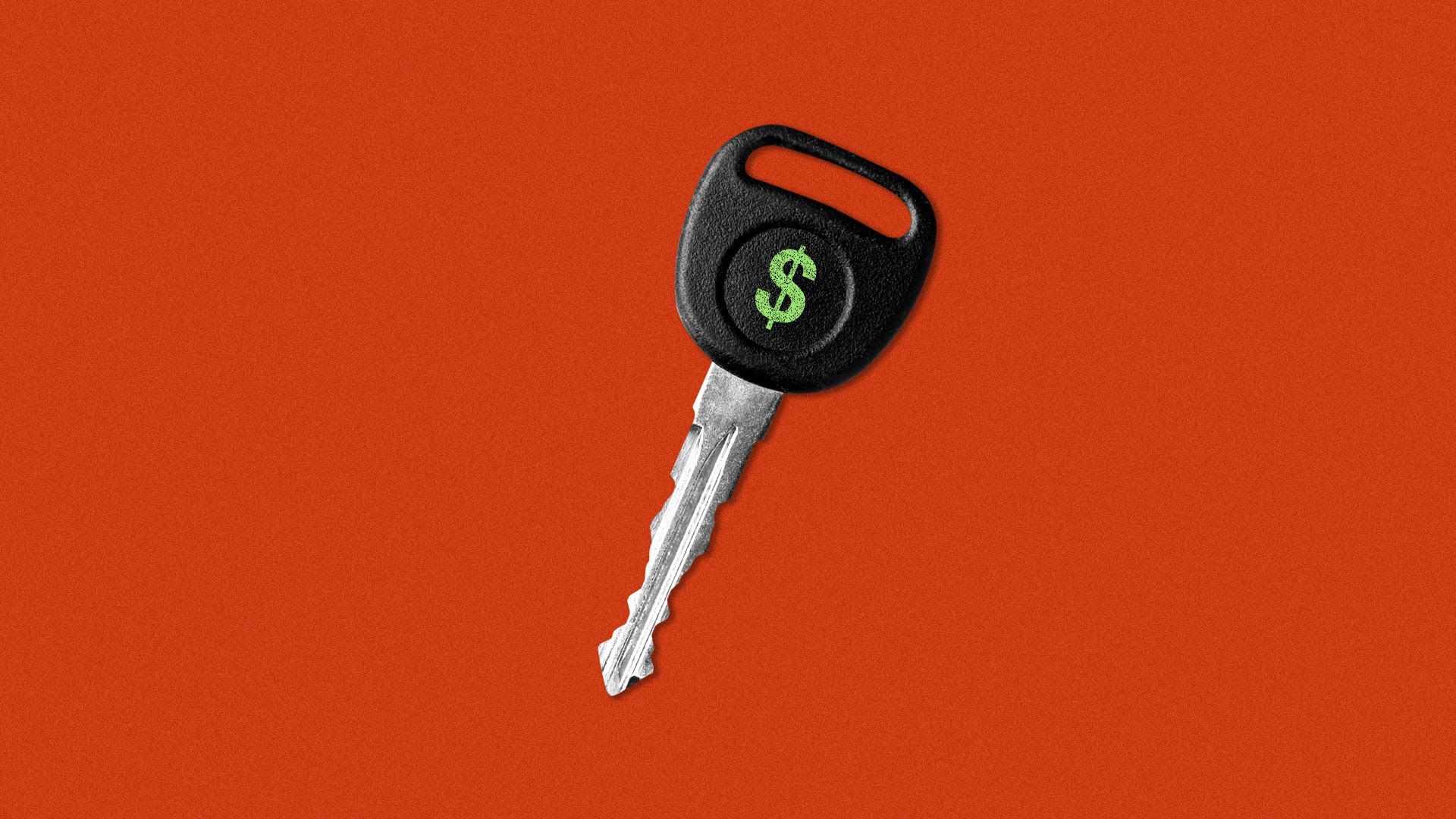Why Hertz crashed
Add Axios as your preferred source to
see more of our stories on Google.

Illustration: Eniola Odetunde/Axios
Car rental giant Hertz filed for Chapter 11 bankruptcy on Friday, ostensibly felled by a pandemic that dramatically lowered demand at its airport counters.
Under the hood: Hertz is a Frankenstein of financial engineering, beginning with its leveraged buyout in 2005 and continuing long after its private equity owners cashed out.
History: Clayton Dubilier & Rice led a $14.8 billion purchase of Hertz from Ford Motor Co. in late 2005. The deal included just $2.3 billion of equity, split equally with the Carlyle Group and Merrill Lynch's private equity unit, and leveraged $6.9 billion of financing against its fleet.
- Six months later it completed a $1 billion dividend recap, meaning the private equity firms de-risked while the company re-levered.
- Hertz went public less than a year after the buyout. Leading into the IPO, it had a debt-to-asset radio of nearly 95% and very little cash on hand.
- In 2012 the company overpaid to buy smaller rivals Dollar and Thrifty, and in 2013 the private equity firms completely exited.
- Following an accounting scandal that dated back to 2011, activist investor Carl Icahn began to invest. At the time of bankruptcy, he was the company's largest shareholder with nearly a 39% stake.
- In 2016, Hertz spun off its equipment rental company into a separate, stand-alone public company.
What to know: Hertz made money by renting cars, but it was more in the car-leasing business. Or, more specifically, creating special purpose vehicles that would issue debt to buy cars, then leasing those cars and renting them out.
- All the while it would pay coupons on the asset-backed securities, hoping to turn profits via the rentals combined with vehicle resale.
- Plus, resale prices have fallen sharply during the pandemic, and will come under further pressure if Hertz creditors force partial fleet liquidation.
Here's how the FT's Sujeet Indap summarized things:
"Hertz is basically a bank that rents cars. This structure reduces the overall cost of capital but when the music stops, look out."
The bottom line: Hertz elevated the Wall Street shell game that originally helped finance its 2005 takeover, without apparently noticing that the original operators had left town.
